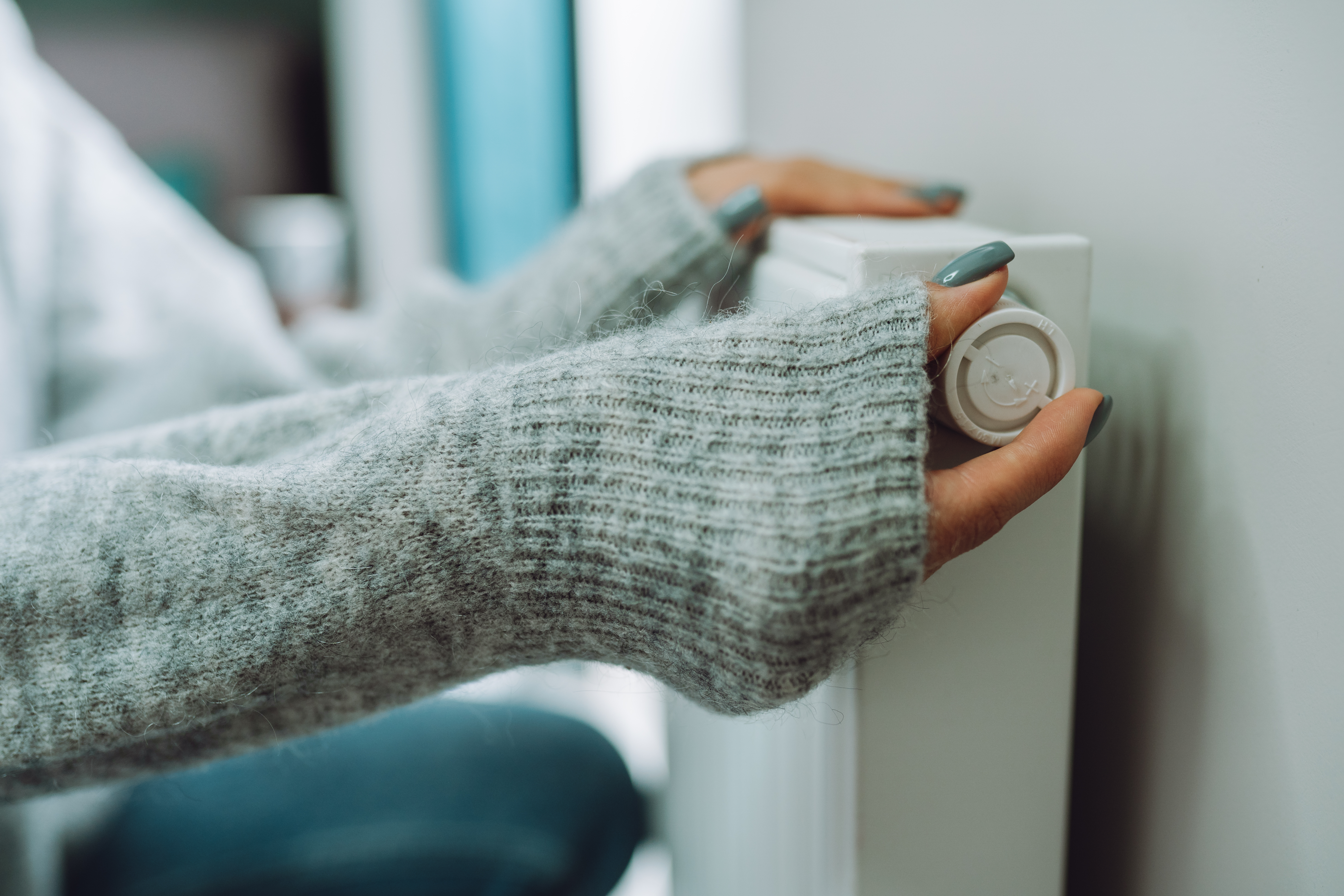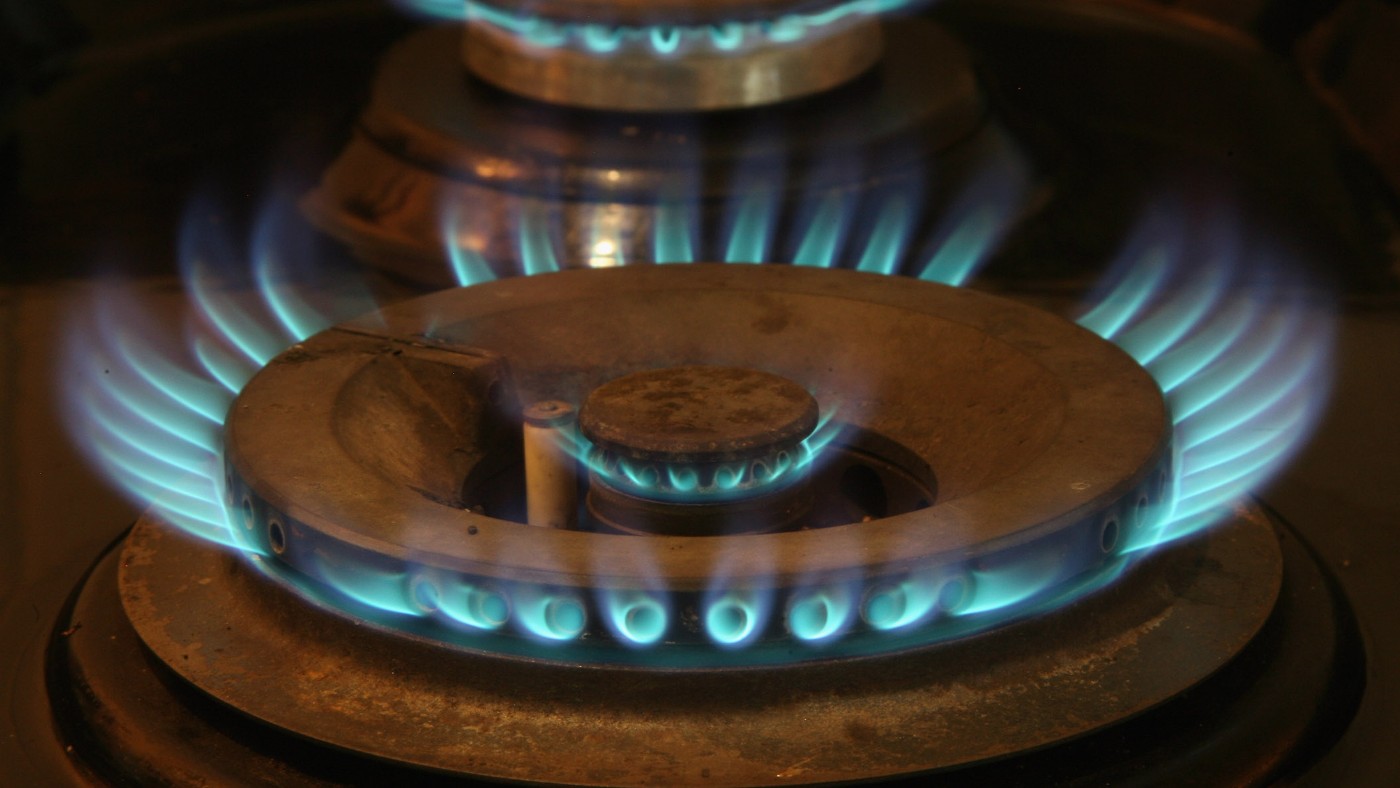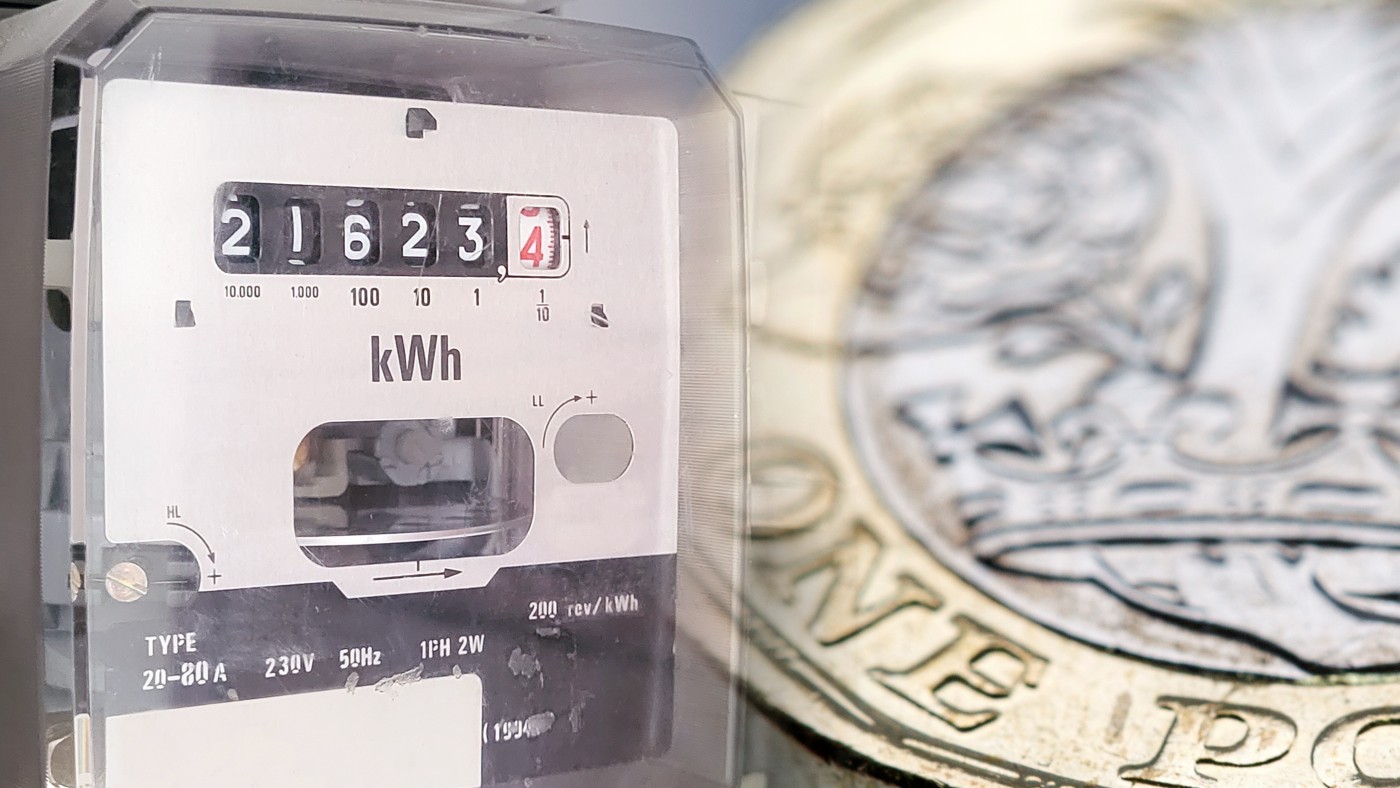Affordable ways to keep your home warm this winter
Households are paying more for their energy than last winter but there are ways to cut the costs of heating your home

A free daily email with the biggest news stories of the day – and the best features from TheWeek.com
You are now subscribed
Your newsletter sign-up was successful
As temperatures drop, many households are looking for new ways to stay warm at home without breaking the bank on energy bills.
The energy price cap fell from £2,074, where it was between July and September, to £1,834 in October, but bills are "still likely" to be more expensive than last winter, said MoneySavingExpert.
Keeping an eye on energy usage is key in keeping bills down, but there are also practical ways to stay warm without turning up the heating.
The Week
Escape your echo chamber. Get the facts behind the news, plus analysis from multiple perspectives.

Sign up for The Week's Free Newsletters
From our morning news briefing to a weekly Good News Newsletter, get the best of The Week delivered directly to your inbox.
From our morning news briefing to a weekly Good News Newsletter, get the best of The Week delivered directly to your inbox.
Invest in insulation
Around 25% of the heat in a typical property escapes through the roof, said the Energy Saving Trust, so loft insulation is an "effective way" to reduce heat loss, keep your heating bills down and your home warm.
It can cost anything from £200 to £2,750 to install loft insulation in a semi-detached house, according to HouseholdQuotes.co.uk, but this should pay for itself "many times" over a 40-year lifetime, added the Energy Saving Trust.
A typical semi-detached house could save £355 per year on energy bills by adding loft insulation, according to the Energy Saving Trust, so if you plan to stay in your home for a while, loft insulation may be worth the investment.
Some households may even be able to save money by installing loft insulation themselves.
A free daily email with the biggest news stories of the day – and the best features from TheWeek.com
Draught-proof your home
Draughty homes are a "waste of money", warned the Centre for Sustainable Energy, as heat that "you have paid for" escapes through gaps while cold air comes in.
Heat can leak out through windows, doors and floors, but you can prevent this by draught-proofing or sealing gaps that let cold air in or warm air out.
Some of this can be done on the cheap using everyday furnishings like rugs and mats on the floor, and curtains or blinds on windows.
Brush strips, which cost around £10, allow natural ventilation "while stopping draughts" in doors, said Expert Reviews. In many versions, bristles can be cut, allowing the brush to "sweep gently when opened, without dragging across the floor".
These small improvements will make your home "more comfortable to live in", said Which?, and you may even be able to turn your thermostat down. This could generate more savings as "turning down the thermostat by just one degree in a typical home could save you between £85 and £90 a year", added the consumer group.
But be mindful of good ventilation, Brean Horne of NerdWallet told Metro, as "your property does need a certain level of ventilation to ensure it doesn't get damp".
Install heating controls
The most energy-efficient way to heat your home is to have the heating on "only when you need it", said Homeserve. This can be done by using the timer on a thermostat so the heating turns off and on at a programmed time – the "most economical way" saving both energy and money.
The Energy Saving Trust estimates that installing heating controls such as boiler timers or smart thermostats can cost about £580, but can save around £180 each year.
A thermostatic radiator valve alone can make you savings "as significant as 40%" on your energy consumption, according to BestHeating. It fits on to your existing radiator and has a sensor that expands once a set temperature has been reached to prevent any more hot water from flowing to your radiator. They are priced at around £10 to £30 so "outfitting every radiator in your home could cost a pretty penny", added IdealHome.
Turn down the boiler flow rate
If you have a combi boiler, you can save money by setting your heating flow temperature to 60-65C. It is likely to be higher than that if you have never adjusted it, warned Which?, meaning "you're using more energy each time your boiler comes on".
These types of boilers should be set to a boiler flow temperature of 60C but many are installed at between 70C to 80C, "burning more gas, generating more emissions, and costing households more than they need to", warned innovation agency Nesta.
If these boilers were optimised with a lower flow temperature, households could reduce their gas use, costs and emissions by 6% to 8%, the charity said.
Electric heaters vs. radiators
With prices starting at around £50, an electric heater can be a cheap and convenient way of keeping warm, as "they can be taken from one room to another if required and you'll only be using what you need", said MoneyWeek.
However, electricity tends to be more expensive than gas, and radiators retain heat better. Heating an entire home with an electric heater by having one in each room will be far more expensive, MoneyWeek added. "You'd be better off using the central heating and turning radiators in empty rooms off at the valve."
Heat the human
Consider wearing more layers, drinking hot drinks and keeping your feet warm, said MoneySavingExpert, so you "heat the human, not the home".
A hot water bottle is "undoubtedly" one of the cheaper ways to stay warm in winter, said Good Housekeeping, or heat pads that you place on your body can provide more "customisable warmth".
Don't stop heating your home, though, said Citizens Advice. It should still be warm enough so there is "less risk of your home becoming damp and you getting ill".
Marc Shoffman is an award-winning freelance journalist, specialising in business, property and personal finance. He has a master’s degree in financial journalism from City University and has previously worked for the FT’s Financial Adviser, the financial podcast In For a Penny and MoneyWeek
Marc Shoffman is an NCTJ-qualified award-winning freelance journalist, specialising in business, property and personal finance. He has a BA in multimedia journalism from Bournemouth University and a master’s in financial journalism from City University, London. His career began at FT Business trade publication Financial Adviser, during the 2008 banking crash. In 2013, he moved to MailOnline’s personal finance section This is Money, where he covered topics ranging from mortgages and pensions to investments and even a bit of Bitcoin. Since going freelance in 2016, his work has appeared in MoneyWeek, The Times, The Mail on Sunday and on the i news site.
-
 Political cartoons for February 15
Political cartoons for February 15Cartoons Sunday's political cartoons include political ventriloquism, Europe in the middle, and more
-
 The broken water companies failing England and Wales
The broken water companies failing England and WalesExplainer With rising bills, deteriorating river health and a lack of investment, regulators face an uphill battle to stabilise the industry
-
 A thrilling foodie city in northern Japan
A thrilling foodie city in northern JapanThe Week Recommends The food scene here is ‘unspoilt’ and ‘fun’
-
 Clean energy tax credits are going away. Here's how to get them before it's too late.
Clean energy tax credits are going away. Here's how to get them before it's too late.The Explainer Trump's recently passed megabill promises the early demise of clean energy tax credits
-
 Energy prices set to rise in October – how to reduce your gas and electricity bill
Energy prices set to rise in October – how to reduce your gas and electricity billThe Explainer With the price cap expected to rise before this winter, what is the best way to prepare, and lower costs?
-
 What is a home energy audit and when is it worth getting one?
What is a home energy audit and when is it worth getting one?The Explainer This evaluation of your home's efficiency can pinpoint where exactly it's wasting energy
-
 Should the Ofgem energy price cap be scrapped?
Should the Ofgem energy price cap be scrapped?Today's Big Question Poorer households may end up paying more this winter despite cap being lowered from October
-
 Cost of living: will fall in energy price cap make a difference?
Cost of living: will fall in energy price cap make a difference?In Depth Limit on what providers can charge falls but consumers are warned they will see ‘little relief’
-
 What is the cheapest way to cook?
What is the cheapest way to cook?feature Air fryers, microwaves and slow cookers can all save you money over conventional ovens
-
 Gas is now cheaper in the U.S. than it was a year ago, for better or worse
Gas is now cheaper in the U.S. than it was a year ago, for better or worseSpeed Read
-
 Is it cheaper to work from home or at the office?
Is it cheaper to work from home or at the office?Talking Point Commuting costs may wipe out savings made from lower domestic energy bills